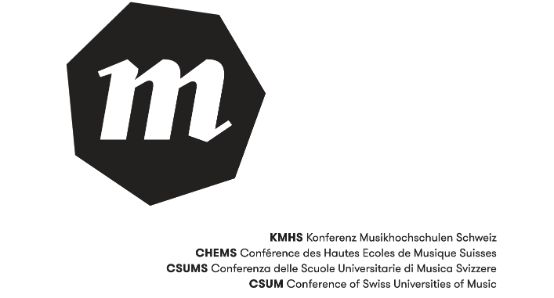On the necessity of art for peace
The Conference of Swiss High Schools of Music supports efforts to restore peace in Europe and positions itself with regard to its levers of action to contribute to it.

Antoine Gilliéron - The war that has been taking place in Ukraine since the end of February has touched the hearts of the HEMs of our country as well as questioning culture and training spaces in their universalist but also sometimes political vocations. How can we contribute to peace today, perhaps even more than in normal times, as tertiary music education institutions?
The eight high schools of music that make up CHEMS have taken a firm stand against the war in Ukraine (cf. Further information) and, while clearly distinguishing individuals from the political regime, adhere to measures aimed at cutting ties with artists representing the current Russian political power as well as to question or even interrupt the cooperation in force with the Russian universities and conservatories which publicly displayed their support for the war at the beginning of March, which is deeply incompatible with the values defended by the conference. Very attached to pacifism, to the rapprochement between peoples through music as well as to the principles of non-discrimination, solidarity and tolerance, the CHEMS affirms its desire to welcome Ukrainian artists fleeing their country but also musicians. Russians and Belarusians in its teaching and student body, even when these people are unable to publicly display their disapproval of the military invasion. Thus, it is crucial for the conference to emphasize the need to differentiate between individuals and regime, to highlight the freedom of art and research as well as the importance of maintaining the possibilities of travel and visas for all people with a nationality that is affected in one way or another by this war. The conference also takes a worried look at attempts to cancel culture and rejects with all its might attempts to suppress from the programs the masterpieces of Russian music which are also part of our exceptionally rich musical heritage.
Thus, from the history of music to the history of Russian instrumental schools, through the partnerships and historical relations that our schools have with Russia, Belarus and Ukraine, the reflection will allow us to take a broader view of the cultural relations that unite these countries with ours. In addition to this perspective, concrete initiatives are being taken to improve the situation in our schools and, to a greater extent, internationally. Whether it's concerts for peace, fundraising for charitable works or aid, the use of the soft power that culture represents, for example by showing its support for Ukraine through various communication channels, or mobilization to help students.es of our institutions (at the financial and psychological level) but also to welcome Ukrainian students.nes who have been released from the war in order to offer them continuity in their studies (including the Erasmus, Horizon Academic and Scholars at Risk systems), the Swiss music schools - in addition to sending a message of solidarity to the community affected by this war and of unity towards all and everyone - are making a major contribution to highlighting the need for art to contribute to the collective construction of peace.








